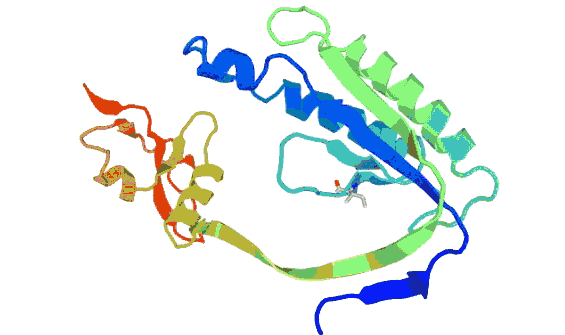Largest genetic study of inflammatory bowel disease provides clues on new drug targets

They also uncover a further 25 novel genetic associations to IBD risk, including several that implicate genes related to a class of therapeutics that has shown promise in the treatment of this disease.
More than 300,000 people suffer from IBD in the UK. The disorder primarily consists of two subtypes: ulcerative colitis and Crohn’s disease, neither of which currently have a cure. IBD is a debilitating disease in which the body’s own immune system attacks parts of the digestive tract. The exact causes of this disease are unclear.
To understand more about the genetics underlying IBD, researchers studied the genomes of 16,000 UK IBD patients, as well as 10,000 more from a previously published international study, in the largest whole-genome IBD genetic study to date.
From the research, which included 5 per cent of IBD sufferers nationwide, scientists identified a rare genetic variant that doubles the risk of ulcerative colitis. The variant affects a gene known as ADCY7, and is carried by 1 in 200 people in the UK. It is one of the strongest genetic risk factors associated with ulcerative colitis to date and presents a novel drug target for IBD.
In the second study, researchers identified that a family of proteins called integrins play a key role in increasing the risk of IBD. Integrins are transmembrane proteins that act as bridges for interactions between cells from the immune system and the rest of the body. For the inflammation associated with IBD symptoms, drugs targeting some of these interactions have been shown to be effective. This study demonstrated that genetic variants that increase the risk of developing IBD also increase the expression of certain integrins in response to stimulation of the immune system.
“We study genetics because we ultimately want to understand the biology of the disease. From the genetic information we can extract a compelling story about why a particular anti-integrin drug is effective against Inflammatory Bowel Disease, or why others have serious side effects.”
Katrina de Lange First author from the Wellcome Trust Sanger Institute
These examples of genome wide association studies give scientists a clearer view of IBD biology than they had previously and are helping to reveal the underpinning biology of human inflammatory diseases overall.
Looking to the future, Sanger Institute scientists, with help from the UK IBD BioResource, are aiming to sequence 25,000 genomes of IBD patients in the next five years. The unprecedented scale of this study will hopefully reveal even more details of the biology of this condition.
“Whilst there are challenges in recruiting large numbers of patients to IBD studies and interpreting the resulting volume of data, there are also great opportunities to better understand the role of genetic variation in not only risk of disease but also in treatment and prognosis. The IBD Bioresource will drive recruitment of IBD patients across the UK and allow recall of patients for repeat tests so the function of specific genes behind IBD can be explored.”
Dr Miles Parkes Co-author of the studies and consultant gastroenterologist at Addenbrooke’s Hospital in Cambridge
The results from these studies will be translated into potential treatments by Open Targets, an initiative that takes the outputs of the genetic studies and works with pharmaceutical companies to aid the development of new treatments for diseases including IBD.
“The scale of these collaborations means we are able to spot genetic associations to IBD that we hadn’t seen previously. We hope that by continuing to work together we will be able to translate these findings into better treatments for IBD patients.”
Dr Carl Anderson A lead author from the Wellcome Trust Sanger Institute
More information
Funding:
This work was supported by Wellcome and the Medical Research Council.
Publications:
Selected websites
UK IBD BioResource
The UK IBD Genetics Consortium has established the IBD BioResource, a resource that enables scientists and researchers to access groups of patients with IBD based on their known genetic make-up, so that they can ask focused questions relating to disease mechanisms and potential new treatments.
Open Targets
Open Targets is a public-private initiative to generate evidence on the validity of therapeutic targets based on genome-scale experiments and analysis. Open Targets is working to create an R&D framework that applies to a wide range of human diseases, and is committed to sharing its data openly with the scientific community.
The Wellcome Trust Sanger Institute
The Wellcome Trust Sanger Institute is one of the world's leading genome centres. Through its ability to conduct research at scale, it is able to engage in bold and long-term exploratory projects that are designed to influence and empower medical science globally. Institute research findings, generated through its own research programmes and through its leading role in international consortia, are being used to develop new diagnostics and treatments for human disease.
Wellcome
Wellcome exists to improve health for everyone by helping great ideas to thrive. We’re a global charitable foundation, both politically and financially independent. We support scientists and researchers, take on big problems, fuel imaginations and spark debate.


